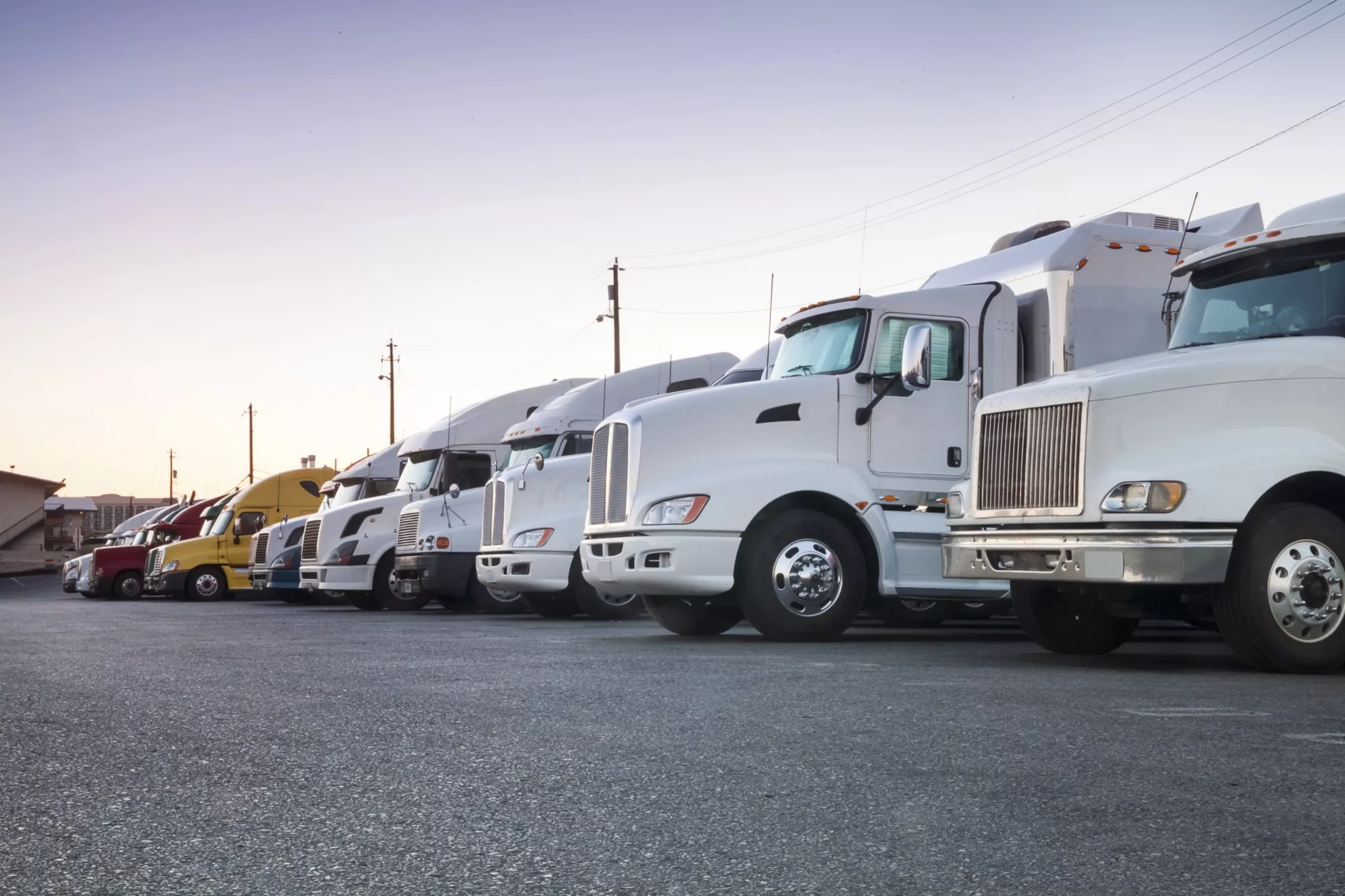OTR, or over-the-road trucking, also referred to as long-haul trucking, involves drivers traversing the breadth of the country, often covering all 48 contiguous states. Distinguished from regional and local drivers, OTR drivers form a specialized group who spend weeks, even months, continuously on the road.

This branch of trucking handles various freight types, from fresh produce to goods arriving at U.S. ports. Typically, these shipments span extensive distances, sometimes exceeding 3,000 miles, with the average OTR load ranging from 1,200 to 1,400 miles.
OTR drivers primarily operate in two modes: solo or as part of a team. Solo drivers take approximately six to seven days to transport cargo coast to coast, whereas teams can accomplish the same journey in roughly three and a half days. If you’re wondering what does OTR mean in trucking, it stands for “over the road,” indicating long-haul trucking that covers extensive distances. Let’s dive in OTR meaning deeply.
Difference Between OTR, Regional, and Local
| OTR | Regional | Local |
|---|---|---|
| OTR truck driver embarks on lengthy journeys, spanning weeks to months. | Regional drivers typically spend 1 to 2 weeks on the road. | Local drivers usually return home daily. |
| They traverse across nearly all states, including Mexico and Canada. | Primarily operate solo. | Mostly work solo. |
| Operations include both solo and team driving. | Specialize in transporting specific cargo types within designated regions like the Northeast, Southeast, Southwest, or Midwest. | Often follow dedicated routes, transporting the same cargo to consistent locations on a daily basis. |
| Focus on transporting fewer loads but over extensive distances. | Handle a higher volume of loads over shorter distances compared to OTR drivers. | Frequently involved in transporting LTL (less than truckload) shipments. |
Salary Ranges for OTR Truckers
How does OTR trucker salary compare with those of their regional and local counterparts? Well, it varies based on several factors. Due to the longer routes and extended time spent on the road, OTR drivers typically earn more than their counterparts. They are usually compensated either by the mile or based on a percentage of the line haul revenue or total revenue for a load.
Regional drivers, operating on shorter routes with more regular hometime, generally earn less than OTR drivers.
Local drivers commonly receive hourly pay, which, depending on the company, may result in significantly lower earnings compared to OTR and regional drivers. However, drivers handling specialized cargo like hazardous materials such as gasoline might earn more than both OTR and regional drivers.
Challenges Faced by OTR Truckers
Transitioning to life as an OTR driver after obtaining all the necessary licenses may seem like the next logical step. However, it’s essential to acknowledge the hurdles that come with this career path. Being an OTR trucker demands sacrificing time at home to spend several days navigating the country’s highways, often encountering adverse weather conditions, congested traffic, and limited dining options along the way. Here are some of the notable challenges faced by OTR truckers:
- Hours of Service (HOS) Rules: Governed by regulations dating back to the 1930s, HOS rules dictate strict limits on driving hours to ensure driver safety and mitigate fatigue. Compliance requires adhering to guidelines such as maximum consecutive driving hours, mandatory rest breaks, and weekly driving hour caps, enforced through electronic logging devices (ELDs) mandated by the U.S. federal government since December 2019.
- Lengthy Detentions: OTR drivers frequently encounter delays during load pickups or deliveries, disrupting schedules and potentially causing setbacks of two to two-and-a-half hours or more.
- Poor Infrastructure: The deteriorating condition of U.S. infrastructure poses challenges for OTR drivers, with a significant portion of roads and bridges exhibiting signs of wear and structural deficiencies, affecting travel efficiency and safety.
- High Levels of Stress: Balancing the demands of an OTR trucking career with personal life can be mentally taxing, compounded by factors like adverse weather, tight deadlines, traffic congestion, and prolonged periods away from family.
- Physical Health Issues: OTR trucking’s sedentary nature and reliance on fast food during long hauls contribute to health concerns such as obesity and diabetes, with truckers experiencing higher rates of these conditions compared to the national working population.
How Logity Dispatch Can Benefit OTR Truckers?
Well, we found out the meaning of OTR, its benefits and challenges. Logity Dispatch offers a transformative solution for over-the-road (OTR) truckers, streamlining their operations and enhancing their overall efficiency. By leveraging Logity’s advanced dispatching, truckers can experience optimized route planning, minimizing idle time and maximizing their driving hours. This results in increased earning potential and reduced fuel costs.
Contact us today to get your trucking business to the next level!







